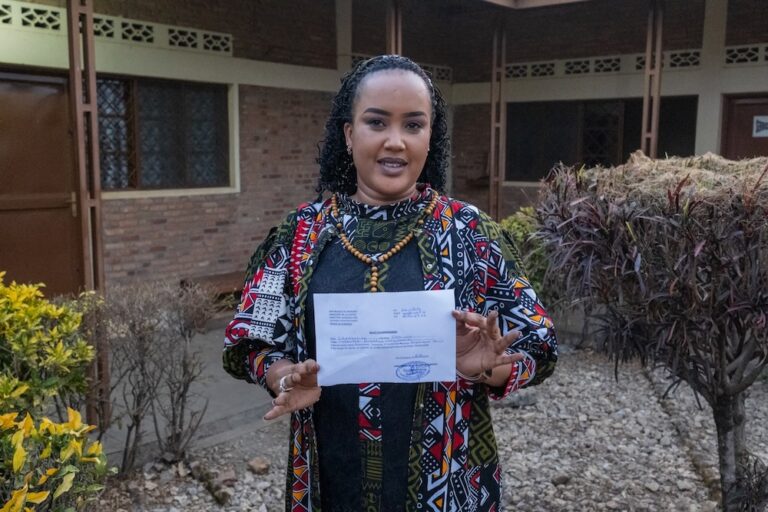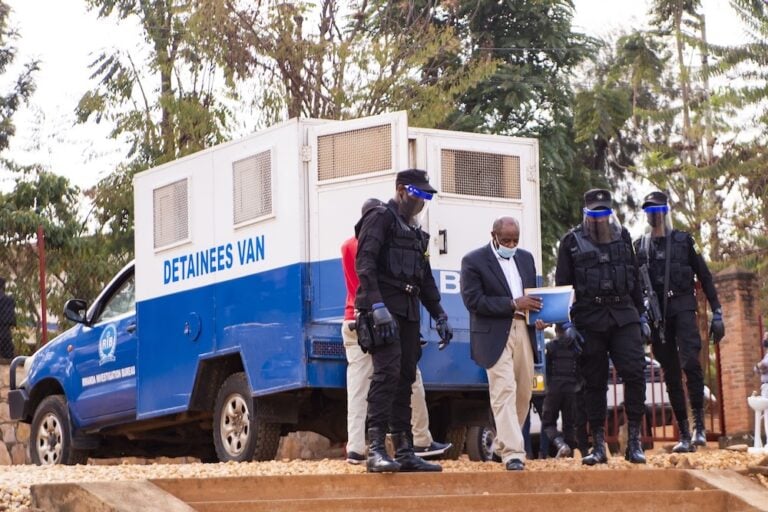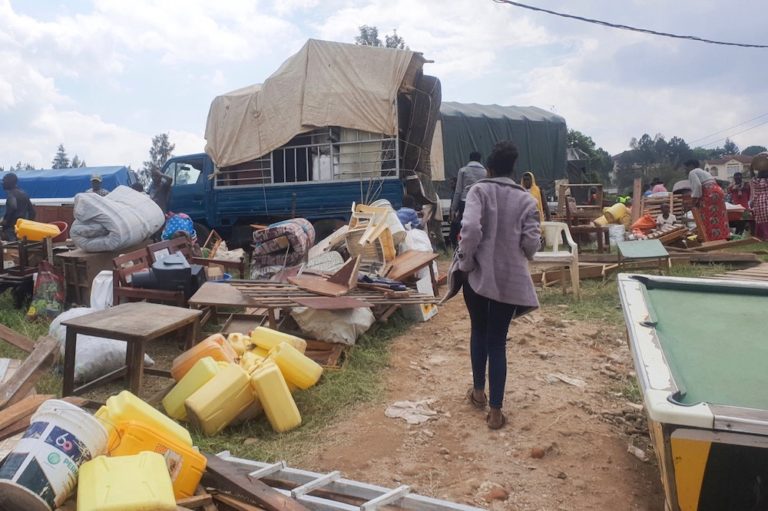(HRW/IFEX) – The following is a 31 January 2002 Human Rights Watch press release: Rwanda: Activists in Detention Rwandan Authorities Should Free Them or Lodge Charges (New York, January 31, 2002) — Rwandan authorities should make public any charges against two Catholic lay figures arrested over the weekend and release them promptly if there is […]
(HRW/IFEX) – The following is a 31 January 2002 Human Rights Watch press release:
Rwanda: Activists in Detention
Rwandan Authorities Should Free Them or Lodge Charges
(New York, January 31, 2002) — Rwandan authorities should make public any charges against two Catholic lay figures arrested over the weekend and release them promptly if there is no adequate legal reason for their detention.
Laurien Ntezimana worked for reconciliation between Hutu and Tutsi before and after the genocide that killed at least half a million Tutsi in 1994. Didace Muremangingo, a young survivor of the genocide, more recently joined Ntezimana in publishing a local journal called Ubuntu.
Arrested by police, the two were then transferred to the Butare central prison. Local judicial authorities say warrants were issued for their arrest on a matter related to their journal but refused to explain further.
Ubuntu has used the term ubuyanja, a term meaning rebirth of strength or energy, in some of its articles. Ntezimana has reportedly been questioned by authorities about the use of this term in the past. The term appears in the name of a political party which former Rwandan president Pasteur Bizimungu attempted to organize in June 2001. Rwandan authorities immediately declared the party illegal. In December 2001 one of the organizers of the party was murdered in mid-day in Kigali. No one has been arrested for the crime. Bizimungu and others associated with the party have been detained and interrogated by the authorities several times in the last few months; and Bizimungu and one of his associates were attacked by street gangs in August 2001.
“If all these men have done is publish a word that authorities don’t like, they should be freed immediately,” said Alison Des Forges, senior adviser to the Africa Division of Human Rights Watch. “To do otherwise violates the freedom of expression that the Rwandan government has vowed to protect and suggests a troubling move towards political repression.”


